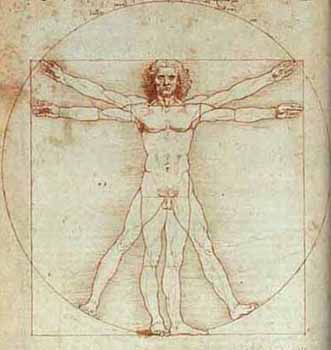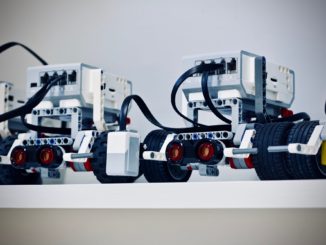
You might not be surprised to hear that there are no actual movies, novels or pieces of music devoted purely to PCT! Really, this page is a bit of light relief after the sheer number of papers and links from the rest of the website. How do you think the following works of literature or popular culture relate to PCT?…
Spiritual truths…
Take this much cited quote attributed to St Francis of Assisi:
“Grant me the serenity to accept the things I cannot change, the courage to change the things I can, and the wisdom to know the difference.”
What is St Francis saying here? We have many things we wish to control in life, only some of which are possible to control in the way we imagine. For example, it may not be possible to push away upsetting feelings indefinitely – in PCT this would be an example of arbitrary control, which contributes to internal conflict. So, by accepting that we cannot change certain things, we can choose to disengage from some goals and focus on others – the one’s where we can exert control.
St Francis suggests we need ‘wisdom’ to know the difference. Whatever this depends on, this process of reprioritizing effectively is close to what is called reorganization in PCT. Maybe St Francis, along with many other wise people over the ages, is hitting upon how we see ourselves and others recover from difficulties and tackle their lives. Could this wisdom be better tested and distilled in the form of PCT?
For a lighter take on how people reorganize to deal with a big problem… take a look at the scene with the Inuit lady in The Simpsons Movie…
Method of Levels?
Bill Powers considers that the following quote illustrates how knowing the reference of a higher level system, as in Method of Levels, can reveal the confusing nature of people’s observable behaviour…
Search then the ruling passion: there, alone,
The wild are constant, and the cunning known;
The fool consistent, and the false sincere;
Priests, princes, women, no dissemblers here.
This clue once found unravels all the rest…
Alexander Pope, ca. 1743.
A 21st Century Renaissance?
In the present day, scientists are clearly divided into different disciplines. PCT eschews these boundaries. Its philosophy is to utilise mathematics to construct computer simulations of psychological and sociological models based on engineering of the human mind that are plausible in terms of basic biology and neuroscience. PCT has applications across arenas as wide as work, education, mental health, artificial intelligence and politics.

The vital role of diverse science, in particular maths and engineering, in the life sciences, is typical of the Renaissance approach to science and art in the 15th century, and most clearly attributable to Leonardo da Vinci. He relied on engineering and mathematical principles to better understand the workings of the body, and how to represent it in art.
Any complete training on PCT would need to be fully interdisciplinary and ‘renaissance’ in nature. Could PCT aid and herald a more integrative and holistic approach to the science and art of the mind?

Computer Games
Many recent advances in computer gaming have relied upon implementing feedback control that characterises PCT. Natural Motion software is one example. PCT has also been used to explain why games can aid learning for young people – there are clear goals, where they recognize that
intervention is possible and where their actions provide immediate and understandable
feedback. Gaming2Learn works on this principle, which is explained in this article.
A New Novel – Crystal Society

A new science fiction trilogy – Crystal Society – has recently been published online. It is based around a new society of androids who have purpose to their lives. Replete with references, the control, purpose, internal conflict, and perceptual hierarchies, the novel draws upon many concepts within PCT, of which the author – Max Harms – is well aware.
Pop and Rock Music
How many pop and rock songs are about the nature of ‘control’ – how it plays out in relationships and how it is gained and lost by the individual: “Standing in the way of control” by Ihe Gossip; “Out of control” by Chemical Brothers, 50 Cent & U2. The songs on the album ‘Meteora’ by Linkin Park seem to be based around control, internal conflict and confusion.
The 2009 Christmas number one single in the UK by Rage Against the Machine was delibately chosen by listeners to regain control over the power of X-Factor in its collective control of the airwaves ‘F*** you, I won’t do what you tell me!” was the refrain…
PCT questions the received wisdom in the social sciences and many have argued that it could provide the kind of scientific breakthrough needed to challenge a dysfunctional society. The 2012 album by Enter Shikari – “A Flash Flood of Colour” reflects these this apolitical, scientific view.
PCT claims to be a theory that resolves lived experience alongside logic and thought – a perennial tension that is neatly summed up in ‘The Logical Song’ by Supertramp…
One might also consider the lyrics of songs that reflect the unrecognised genius of Bill Powers – such as James Blunt’s ‘One of the Brightest Stars’ and Amy MacDonald’s ‘My Only One’.
There is even some work using PCT to develop computerised systems that compose music.
At the movies…
Examples of how PCT can be used to analyse movies are provided by Layla Dear – Drop Dead Fred, and by Richard Westmoreland – Donnie Darko.
The movie ‘Control’ documents the life of Ian Curtis, the lead singer of Joy Division, one of the key bands of the neo-punk movement and the Manchester music scene. The movie focuses on his issues of control – made painfully salient by his escalating difficulties controlling his epilepsy and his dichotomous relationships. In a final desperate act, he kills himself. Can you think what contributed to Ian’s loss of control and maybe imagine what might have lifted him from this internal conflict had things been different?
The movie ‘Ratatouille’ provides a reversal of the attempts by psychologists to try to control the behaviour of laboratory rats. In this film, the rat is a talented chef, and he helps a hapless human boy by controlling his cooking whilst concealed in his chef’s hat. Is the rat really controlling the boy’s behaviour in this film? Or is he sending out a signal that the boy needs to learn to use?
The 1972 movie, Sleuth, provides a great illustration of how two clever individuals engage in escalating countercontrol by controlling at higher and higher levels of perception – to the point that the entire scenario of the film is exposed as an intricate ‘game’ created by one of the protagonists.
And finally, Kung Fu Panda has been taking some advice from St Francis of Assisi about the futility of arbitrary control…
Oogway: My friend, the panda will never fulfill his destiny, nor you yours until you let go of the illusion of control.
Shifu: Illusion?
Oogway: Yes.
[points at peach tree]
Oogway: Look at this tree, Shifu: I cannot make it blossom when it suits me nor make it bear fruit before its time.
Shifu: But there are things we can control: I can control when the fruit will fall, I can control where to plant the seed: that is no illusion, Master!
Oogway: Ah, yes. But no matter what you do, that seed will grow to be a peach tree. You may wish for an apple or an orange, but you will get a peach.
Note: this page was drafted a few years ago on http://pctweb.org/: information needs to be updated. Volunteers welcome.



